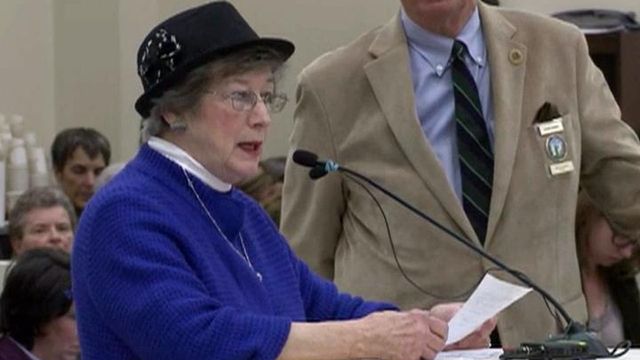Dix lease debate pits Raleigh business leaders against advocates for mentally ill
Local business leaders and others told Wake County lawmakers Monday that they need to stand behind Raleigh's lease of the former Dorothea Dix site, while advocates for the mentally ill said a psychiatric hospital should be returned to the 325-acre site.
Under the terms of a 99-year lease signed in December by Raleigh Mayor Nancy McFarlane and former Gov. Beverly Perdue, the city would pay $500,000 a year – plus annual escalators – for the Dix site, allowing officials to convert it into a major urban park.
Republican lawmakers criticized the deal, which they said didn't provide the state with a fair return. They also said it would end up costing taxpayers money because state Department of Health and Human Services offices at the site would have to be moved.
Senate Bill 334, which is expected to be debated on the Senate floor Tuesday, calls for the lease to be renegotiated at a fair-market price, with the proceeds designated for mental health programs. Also, DHHS would be allowed to maintain its offices on part of the site.
Greg Poole Jr., the head of the Dix Visionaries group of park boosters, said the Dix lease shouldn't be a partisan issue, noting that both Democrats and Republicans in the area have backed the idea of converting the site to a park.
"People of honor and integrity do not back out on their word," Poole said. "Demonstrate that, when the state of North Carolina signs a contract, it has value beyond an election."
Harvey Schmitt, president of the Greater Raleigh Chamber of Commerce, said the development of a major park near downtown would benefit the region in the years to come, and Temple Sloan, founder of the Carquest auto parts chain and chairman of Highwoods Properties Inc., said he was appalled that the state would break its word.
"Is this the image you want of our state?" Sloan asked lawmakers.
Bill sponsors said the Dix land was given to the state in the mid-1800s for the benefit of the mentally ill, and the state needs to stick to that goal. They also said the lease gives the state the right to condemn the property for public use, so they are only exercising that right.
Half a dozen advocates said they agreed.
Ann Akland, speaking for the Wake County chapter of the National Alliance for the Mentally Ill, said the Raleigh area already has plenty of parkland, but the state needs more in-patient options for people with mental illness.
Akland and others said North Carolina has already broken its word many times when dealing with the mentally ill, promising more treatment resources but only cutting back services.
"These bills are the only things that acknowledge that we have sick people in North Carolina," advocate Hope Turlington said.
"The Dix property issue boils down to an unfair battle of the haves and the have-nots," volunteer Louise Fisher said. "Most park advocates have money and a voice. The mentally ill have no money and no voice. They are simply at your mercy."
"We can only honor Dorothea Dix by once again promoting mental health care as a primary source for this property," advocate Steve Church said.
Rep. Jim Fulghum, R-Wake, said the state never should have shuttered Dorothea Dix Hospital. Still, state officials shouldn't try to break a lease, he said, and there needs to be some compromise.
"There's plenty of room to develop a park while leaving room for DHHS," Fulghum said.
Joseph Huberman, who since 2003 has been part of groups studying the conversion of Dix to a park, said all 325 acres need to be used for a park. He noted most of the initial Dix land has been given away in the past to North Carolina State University, the State Farmers Market and other uses.
"Don't set the precedent of being the first legislature in history to destroy the credibility of the word of the state of North Carolina," Huberman said.
Brian Anderson, a financial services executive, said trying to renege on the Dix lease is just the latest example of the "debacle" the legislative session has become.
"Do you really wish to revoke a signed contract simply because you don't like it?" Anderson asked. "Don't overreach this session. ... Don't let this become spite."
Dozens of people spoke about the Dix issue and other legislative proposals during the two-hour hearing, and lawmakers said those who didn't have a chance to speak could address the delegation at its April 8 meeting.











